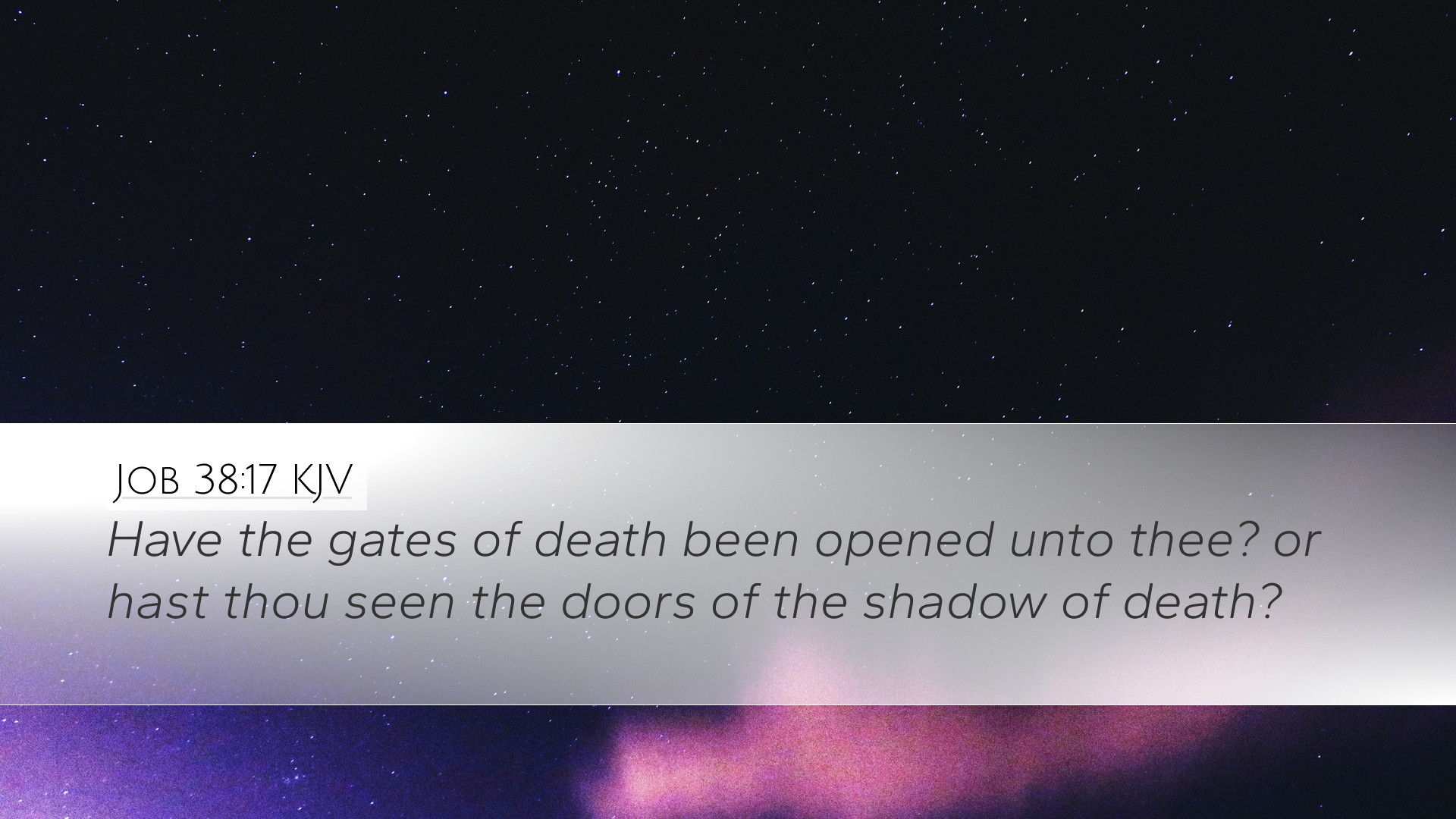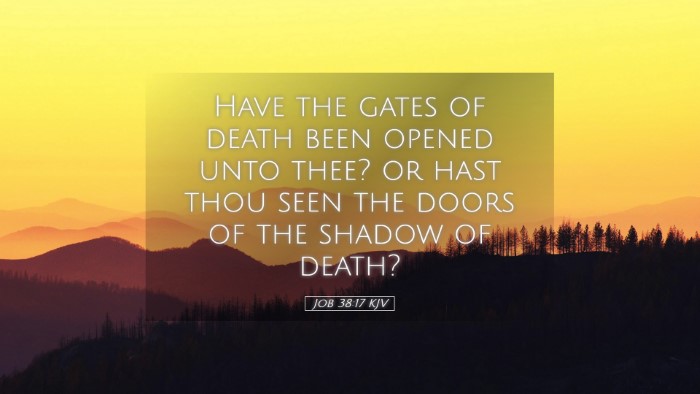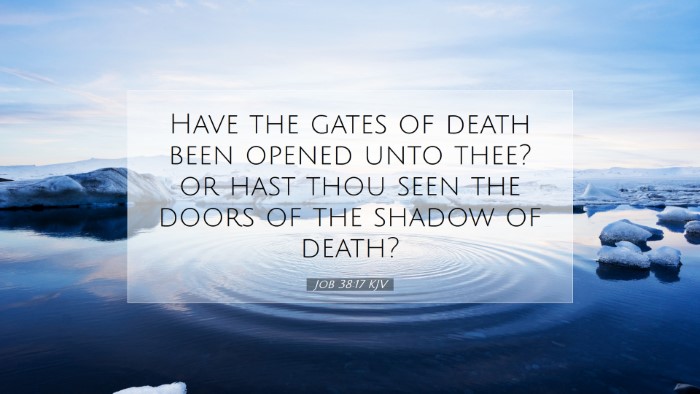Commentary on Job 38:17
Verse Text: "Have the gates of death been opened to you? Or have you seen the gates of deep darkness?" (Job 38:17, ESV)
Introduction
The book of Job is a profound exploration of suffering, divine justice, and the relationship between God and humanity. In Job 38, God responds to Job's lamentations and inquiries regarding his suffering with a series of rhetorical questions that highlight human limitations in understanding divine wisdom.
Contextual Background
This verse is part of a grand discourse where God speaks out of the whirlwind, challenging Job with questions that illustrate the majesty and mystery of creation. It is a pivotal point in the narrative after Job has expressed his deep anguish and questions regarding his circumstances. God's inquiry about the gates of death serves to remind Job of the vastness of divine knowledge compared to human understanding.
The Meaning of the Gates of Death
Matthew Henry emphasizes that the "gates of death" metaphorically represent the 'realm of the dead' or Sheol, indicating a point of finality and divine authority over life and death. The gates suggest a barrier that remains closed to humanity without divine permission or insight. God’s questioning serves to illustrate that humans ought to recognize their limited perspective on life beyond the physical realm.
Death and Divine Sovereignty
Albert Barnes points out that this verse underscores God's sovereignty over all of creation, including death itself. By asking Job whether he has witnessed these gates, God highlights Job's inability to control or fully comprehend the mysteries of life and death. It speaks to the overarching narrative whereby human suffering does not escape God’s purview; rather, it is enmeshed within the divine plan.
The Gates of Deep Darkness
The phrase "gates of deep darkness" may refer to the unknown depths of existence that lie beyond human experience. Adam Clarke interprets this as signifying the dark places of the earth, including death’s domain where illumination and understanding cease. Clarke notes that darkness here symbolizes ignorance of God's methods and purposes, reinforcing the idea of divine transcendence over human knowledge.
The Contrast of Light and Darkness
By juxtaposing death with deep darkness, the text evokes the philosophical themes of knowledge versus ignorance, life versus death. Spiritual Insight: Both physical and spiritual darkness can be seen as a metaphor for the trials Job faces, invoking a broader theological reflection on how believers navigate through dark periods in life while trusting in the providence of God.
Theological Reflections
- The Mystery of Suffering: God's questioning leads to contemplation on the mystery of suffering. Job’s struggle is not merely about his personal anguish but connects to the pervasive mystery found in the human condition.
- Invocation of Humility: Believers are prompted to adopt a posture of humility before God’s incomprehensible governance of the universe. Job learns that questioning God in times of distress is natural but must be coupled with an acknowledgement of the limitations of human understanding.
- Hope Beyond Death: The inquiries into the realms of death and darkness also open a dialogue regarding eschatology and the hope of resurrection. Believers are reminded of the ultimate victory over death through Christ, giving context to human suffering in light of eternity.
Practical Applications
Pastors and teachers can draw from this commentary to guide congregations in recognizing the complexity of their experiences with suffering. When discussing this verse, they may emphasize the importance of trusting God's plan despite the absence of understanding. Additionally, this passage can serve as a starting point for discussions on the nature of God, human suffering, and the hope of eventual redemption through Christ.
Conclusion
Job 38:17 serves as a critical moment in the dialogue between God and humanity, challenging believers to confront the profound questions of life, death, and divine purpose. The commentaries from Henry, Barnes, and Clarke enrich our understanding of this text, inviting deeper theological and existential reflection. Ultimately, as believers grapple with the mysteries of existence, they are encouraged to rest in the faithfulness of God, who reigns over even the darkest depths of human experience.


